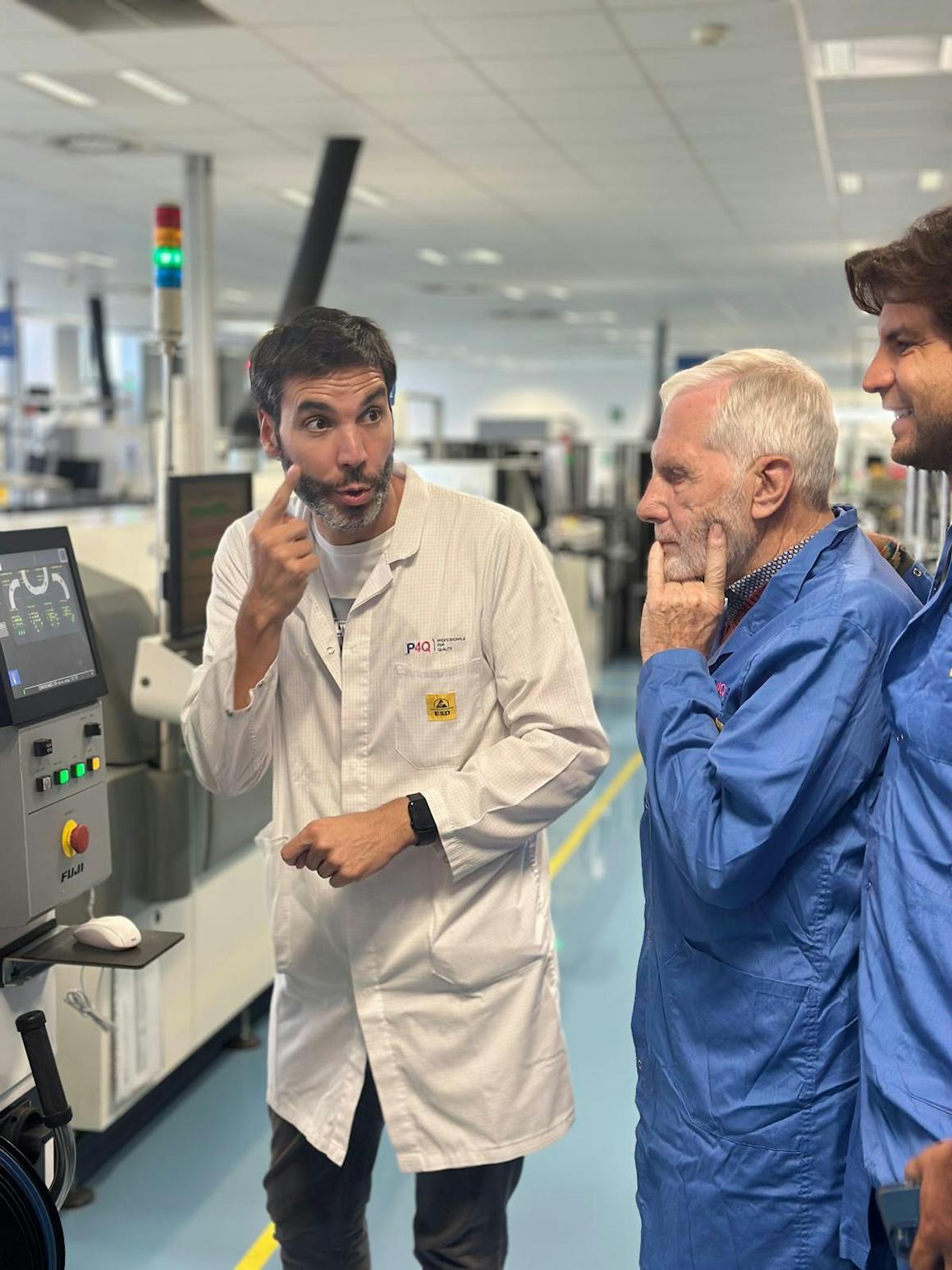This Is What Makes Our Transformation Approach Unstoppable. Every Time.

Two weeks ago, I was in Bilbao. For a group of 25 investors, we organized an event to fundraise for our company Krisos.

For those of you unfamiliar with Krisos: it's the company through which we buy traditional businesses and transform them into flourishing self-managing organizations.
At the investor event, we were sharing our approach: buying companies, transforming them, and showing what’s possible when organizations are built on trust, autonomy, and ownership.
Three of the other Krisos partners, Jabi, Dunia, and Xavier, presented our bold transformation approach and how we're applying it at the first two companies we acquired.
After their presentations, I spoke with several of the investors in the room.
Surprising to me, they weren’t most enthusiastic about the stories of self-management, the bossless structures, or the fact that teams set their own goals. Those things interested them, yes, but they weren’t decisive.

What truly convinced some of them to commit money was something else: they saw that our work wasn’t just fluffy idealism.
It wasn’t just lofty words about trust and freedom.
It was also rooted in a clear, disciplined, and pragmatic approach to running a business well.
This duality, the marriage of idealism and pragmatism, is, I believe, the essence of our approach.
And it’s often overlooked.
Two temptations
In transformations, there are two common temptations.
Temptation one: the idealists.
They get inspired by self-management. They believe in people. They embrace autonomy and participation. They want to tear down hierarchies and let teams lead themselves. It’s an inspiring vision, and in the short term, it can energize people. But without strong business fundamentals, it remains fragile. Freedom without grounding can drift into confusion.
Temptation two: the pragmatists.
They see the company primarily as a machine to be optimized. They dive into costs, margins, and efficiency. They build reporting systems and controls. The numbers improve, but often at the expense of the human spirit. People adapt, but they don’t thrive. The business runs, but it doesn’t grow into its full potential.
Both approaches create partial transformations. Each unlocks something, but each leaves much untapped.
The power of balance
At Krisos, we deliberately pursue the transformation from both angles.
- From idealism we take the conviction that people, when trusted, will take ownership and rise to the occasion.
- From pragmatism we take the conviction that businesses need clarity, discipline, and financial transparency to be healthy.
To us, neither is optional. Both are essential.
This is why, when we buy a company, we don’t just flatten the hierarchy and give people more autonomy.
We also introduce practices like 'open book management'.
We teach everyone in the company how to read and understand the financials. We show which products earn a healthy margin and which don’t. We make the numbers visible, not just to a selected few, but to everyone.
The combination is powerful.
When employees see the numbers clearly, they’re not just free to make decisions. They’re equipped to make them well.
They understand which deals are worth pursuing. They see where waste erodes profit. They can connect their daily work to the company’s health, which is a huge boost in motivation.

Why this matters for transformation
Many self-management stories focus almost exclusively on the human side: the freedom, the trust, the flattening of hierarchies.
It’s an inspiring narrative, but in isolation, it often doesn’t last.
People may be free to choose, but without understanding the business reality, they don’t have the foundation to make good choices.
On the other hand, many business transformations focus exclusively on the financial side. On tightening operations, improving margins, streamlining costs.
The business looks healthier on paper, but the human potential remains deeply underutilized.
People follow rules, but they don’t bring their best selves to work.
What we’ve learned is that real transformation is only possible when both are present. When you combine the inspiration of self-management with the discipline of strong management. When you combine the belief in people with the transparency of numbers.
A full transformation
That’s why, in Bilbao, investors told me this balance was what made them believe.
They didn’t just see idealism.
They didn’t just see pragmatism.
They saw both.
And that’s the essence of what we do. We don’t want to build companies that are just “nicer places to work.” And we don’t want to build companies that are just “better managed.”
We want to build organizations that are fully transformed. Where the human spirit and the business fundamentals reinforce each other and create a truly impactful business.
Because if you only pursue one side, you unlock only part of what’s possible.
The true potential, the full transformation, only emerges when idealism and pragmatism meet.
On Tuesday, we kick off a new cohort of our Masterclass 'Running and Scaling Self-Managing Organizations'.
In it, you learn how to balance idealism and pragmatism. And how to truly unleash the magic.
Last chance: enroll now.



